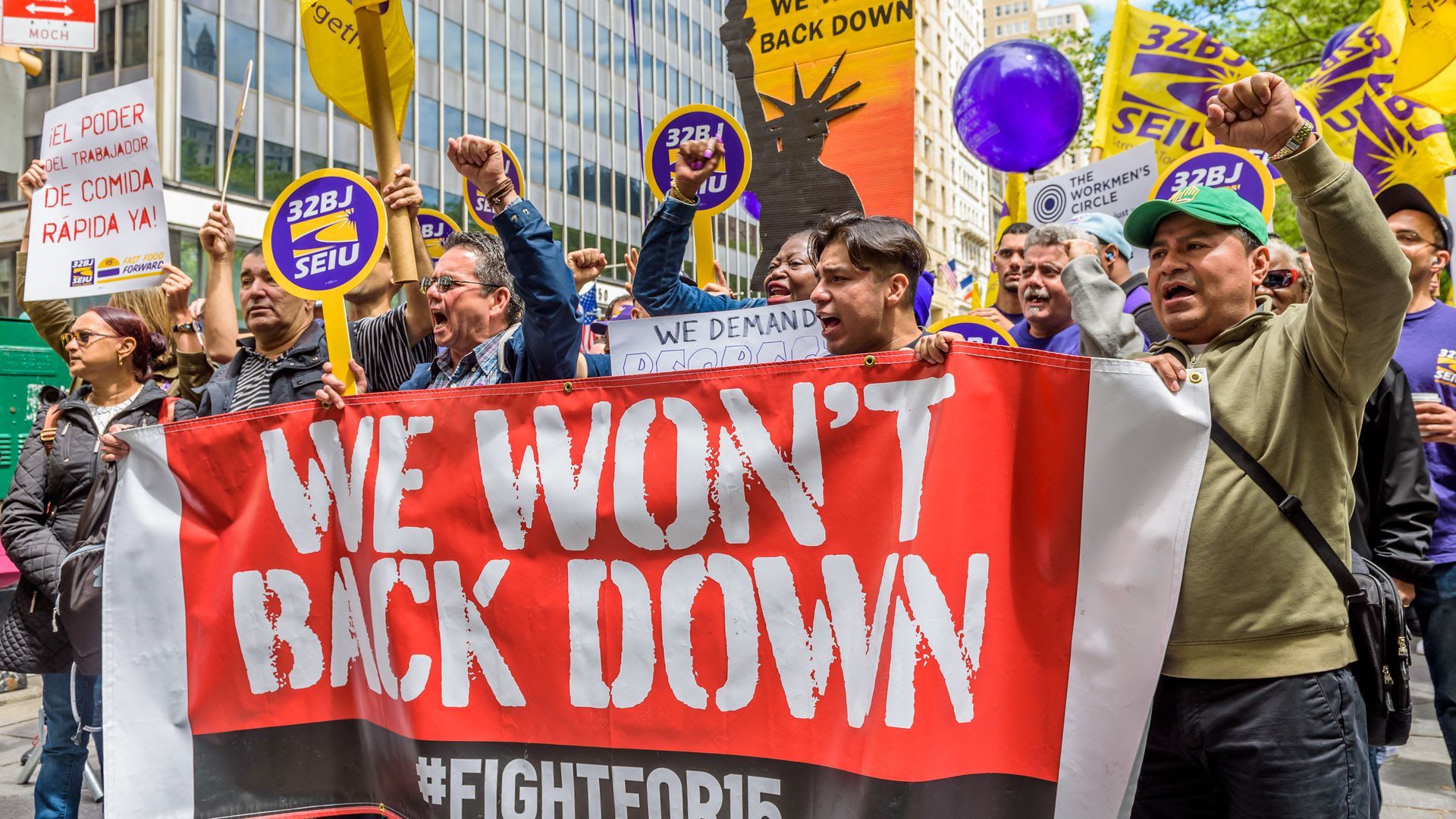The good news and bad news about wage growth
Add Axios as your preferred source to
see more of our stories on Google.

Fast-food workers, cashiers, cooks, delivery people and their supporters held a rally outside New York City Hall in 2017. Photo: Erik McGregor/Pacific Press/LightRocket via Getty Images
Having largely been left out of the U.S. recovery over the past decade, low-wage workers are starting to see their incomes rise meaningfully and are pushing for more.
Why it matters: With a tight labor market wherein the number of job openings exceeded the number of unemployed by the largest margin on record, businesses are having to make more concessions to keep low-wage workers and find new ones.
What's happening: Even though Amazon raised its minimum pay for all workers to $15 an hour last year, employees at its Shakopee, Minn., fulfillment center are planning a Prime Day work stoppage to protest productivity quotas and poor working conditions, according to CBS News.
- Target raised its minimum wage for the third time in 2 years in April and plans to raise it to $15 an hour by 2020. Walmart also increased its minimum wage and said in its first-ever Environmental, Social, and Governance Report that employees average $14.26 an hour.
- Yet criticism has continued, with calls to further hike wages, provide better benefits and even give workers seats on the board of directors.
By the numbers: After trailing higher-paid workers for years after the financial crisis, earnings for the bottom 25% of workers have been growing at a rate over 4% since July 2018, while the national average has been stuck near 3%, data from the Atlanta Fed shows.
- Weekly earnings for the bottom 10% of full-time workers have grown even faster, far outpacing workers at the median.
What they're saying: Research analysts at Goldman Sachs see a "lack of investor concern" about rising wages, they said in a Tuesday morning note to clients. However, the bank's survey data indicates "a record level of corporate concern regarding labor costs."
- Due to a combination of negative forces, including "tariffs, already-rising inputs costs, and weak economic activity, profit margins are unlikely to rebound in the near future," analysts said.
Reality check: Only the top 10% of U.S. households have fully recovered the wealth they lost in the financial crisis, and company earnings growth has been rising much faster than wages.
The intrigue: Interested parties, including Walmart and Amazon, are lobbying the government to raise the federal minimum wage to $15 an hour, which the CBO said in a report Monday would increase wages for 27 million Americans, but also cost 1.3 million jobs and "reduce total real (inflation-adjusted) family income in 2025 by $9 billion, or 0.1 percent."
Go deeper: A case for large wage hikes
